DEMETER: how an enforcement operation is driving Customs’ efforts against illicit trade in waste, ODS and potent greenhouse gases
22 June 2025
By the WCO SecretariatThe WCO aims through Operation DEMETER to equip Customs officers with the knowledge, tools, and cross-border networks needed to address environmental crime related to waste, ODS and potent greenhouse gases with agility and precision.
The first Operation DEMETER was launched in 2009 by the WCO with the objective of mobilizing Customs administrations on the implementation of the Basel Convention on the Control of Transboundary Movements of Hazardous Wastes and their Disposal (the “Basel Convention”). It was the first time that an international enforcement operation focused on waste covered by the Convention at the time, namely hazardous wastes, household waste and incinerator ash.
Seizures reported by Customs administrations during this first operation evidenced the dumping of waste containing toxic chemicals in the developing world, and the trafficking of household waste and e-waste. The operation also revealed major discrepancies among national legislations governing transboundary movements of waste, with some countries not yet having put legislation in place for the implementation of the Basel Convention and its notification and consent procedure, known as “prior informed consent” (PIC). The WCO and China Customs, which funded the operation, decided to repeat the exercise regularly to keep on mobilizing Customs administrations on the issue of illicit waste and contribute to developing their enforcement capacity.
Extended scope
In 2019, substances controlled under the Montreal Protocol on Substances that Deplete the Ozone Layer (the “Montreal Protocol”), including those introduced by its Kigali Amendment in the same year, were added to the list of targeted commodities. They include nearly 100 industrial chemicals, such as ozone depleting substances (ODS) like chlorofluorocarbons (CFCs) and hydrochlorofluorocarbons (HCFCs), as well as hydrofluorocarbons (HFCs), which are potent greenhouse gases regulated under the Kigali Amendment. Subsequently, in 2021, following the entry into force of the Basel Convention Plastic Waste Amendments, participating administrations were asked to strengthen controls on the transboundary movements of plastic wastes. As for e-waste, it became a focus of the operation, even before the Basel Convention E-Waste Amendments came into force on 1 January 2025.
Originally focused on Asia and Europe, the operation soon welcomed administrations from South America, the Caribbean, and Africa, where recent capacity-building workshops and enforcement efforts sparked a noticeable increase in reported cases. This broadened reach enabled the WCO to address the challenge of shifting smuggling routes and to leave no region behind.
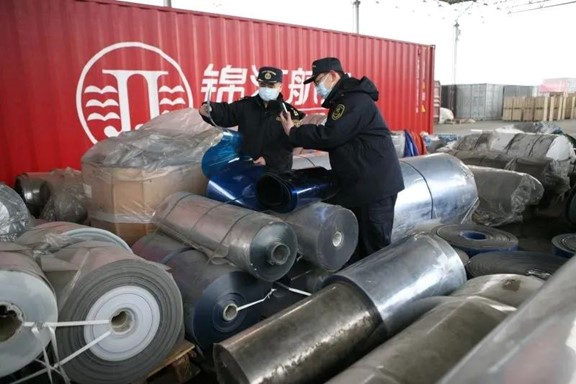
Outcomes
Today, ten operations have already taken place, and a new one is planned. China Customs has been instrumental in the organization of each of them, from funding critical capacity-building activities, to providing consistent operational support. Although the number of administrations has varied from one iteration to the other, the ratio of seizures/administrations has grown steadily (see graph below). In total, participants have seized 519 million kg and 1.78 million pieces of waste, nearly 553,000 kg of ODS and HFCs, and 28,152 kg and 12,195 pieces of equipment using ODS and HFCs.
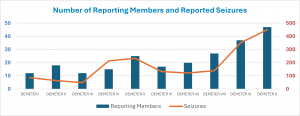
Guidance documents on developing of risk profiles for plastic waste, e-waste, ODS and HFCs have been developed to support risk analysis and optimize enforcement resources. The WCO has trained more than 300 officers, equipping them with the tools and knowledge needed to detect and disrupt environmental crime at the borders. Between Operation DEMETER VIII in 2022 and Operation DEMETER X in 2024, the number of reported seizures surged by 223.7%, a clear indicator both of stronger engagement and of more strategic enforcement.
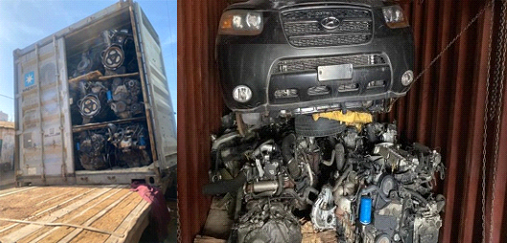
Engaging stakeholders
What began as a seizure-reporting mechanism as matured into a major environmental law enforcement and capacity-building initiative benefiting from the engagement of WCO Regional Intelligence Liaison Offices (RILOs) who play an active role in real-time information exchange and joint operational enforcement. Eight international organizations support the operation, enhancing operational coordination and sharing of technical expertise. The first ever joint WCO-Basel Convention workshop in 2024 was a breakthrough moment, bringing together Customs and environmental officers, and setting a strategic course for future joint actions under Operation DEMETER.
National environmental agencies also play a crucial role. Members of the European Union Network for the Implementation and Enforcement of Environmental Law (IMPEL) supported their Customs counterparts at the borders. Environment and Climate Change Canada took joint action with the Canada Border Services Agency, and various national environmental agencies from countries like Gambia provided critical backing to Customs.
Smuggling trends
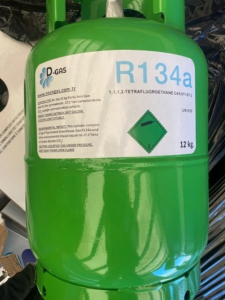
The operations have provided valuable insights, but also evidenced that smuggling methods are constantly changing and adapting.
Regarding waste, starting with Operation DEMETER VII in 2021, a notable shift occurred as seizures at export increased, reflecting sustained enforcement efforts and growing awareness at departure points. Moreover, during Operation DEMETER X in 2024, Africa overtook Asia for the first time as the primary destination for illegal waste shipments from Europe, a shift probably driven by uneven enforcement capacity and regulatory gaps in African countries.
The illicit trade in HFCs has escalated due to disparities in phase-down schedules between developed and developing countries. High demand, coupled with attempts to bypass licensing systems, have created a lucrative black market. Smugglers exploit countries that still have production, use and consumption quotas, shipping banned substances to regions where such quotas are dwindling.
Additionally, Customs officials have noted a rise in seizures of older equipment containing substances being phased out or phased down, as well as in newer devices banned by some countries to reduce demand for refrigerants. Equipment containing obsolete refrigerants may fall under both the Basel Convention (as e-waste) and the Montreal Protocol, requiring close collaboration between Customs and environmental authorities to classify the goods and take appropriate action.
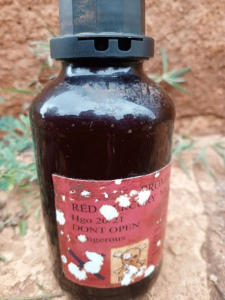
The tightening of global controls on waste and substances controlled under the Montreal Protocol has pushed smugglers to reroute shipments, falsify documentation, and exploit free trade zones and transit points. Shipments originate from and are destined for diverse locations, making patterns difficult to track. For instance, most interceptions of controlled substances under the Montreal Protocol have occurred during import and more than half have involved transit points, indicating the complexity of the smuggling routes, though inspections at warehouses, markets, and means of transport have also proved effective.
Participants’ experience
Belgium Customs, which oversees the flow of cargo moving through the seaport of Antwerp, the second largest seaport in Europe, has been participating in the DEMETER Operations since the first edition. Over the years, together with other participants, it has fine-tuned risk profiles. During the latest operation, Belgium Customs stopped many shipments and identified 37 infringements at export or transit.
During the DEMETER Operations, Gambia Customs enhanced its communication, coordination, consultation, and information sharing with the National Environment Agency, the Registrar of Chemicals and Pesticides, the Ministry of Petroleum and Energy, the Police Department, and other agencies. This paid off and, during DEMETER IX and X, Gambia Customs made the highest number of seizures.
Sometimes, suspicious containers in transit and transhipment cannot be controlled or stopped in time, and being able to contact the country of transit and import is critical. DEMETER participants are able to share information swiftly in a secured way, and thus can warn each other. One case illustrates this key benefit. During Operation DEMETER X, at the port of Rotterdam, the Human Environment and Transport Inspectorate and the Customs Administration intercepted shipments of waste lead acid batteries from Jamaica and Puerto Rico. As the PIC procedure had not been respected, 30 containers were stopped, though four containers managed to slip through, bound for India via Sri Lanka. Promptly, National Contact Points in India and Sri Lanka were alerted. Thanks to swift information exchange, India Customs intercepted the four containers.
Way Forward
Future editions of the operation will focus on supporting participants in improving data analytics on new areas such as textiles, identified as such by the Basel Convention COP-17. They will also give an opportunity to determine the impact of initiatives such as the EU Directive 2024/1203 on the protection of the environment through criminal law. With continued support from its partners, the WCO aims through the operation to equip Customs officers with the knowledge, tools, and cross-border networks needed to address environmental crime with agility and precision.
Having more WCO Members actively participate in the operation would greatly enhance its impact. Another Operation DEMETER is planned and all WCO Members are invited to join this unique and impactful international enforcement effort and show their commitment to protecting our planet.
More information
enforcement@wcoomd.org

